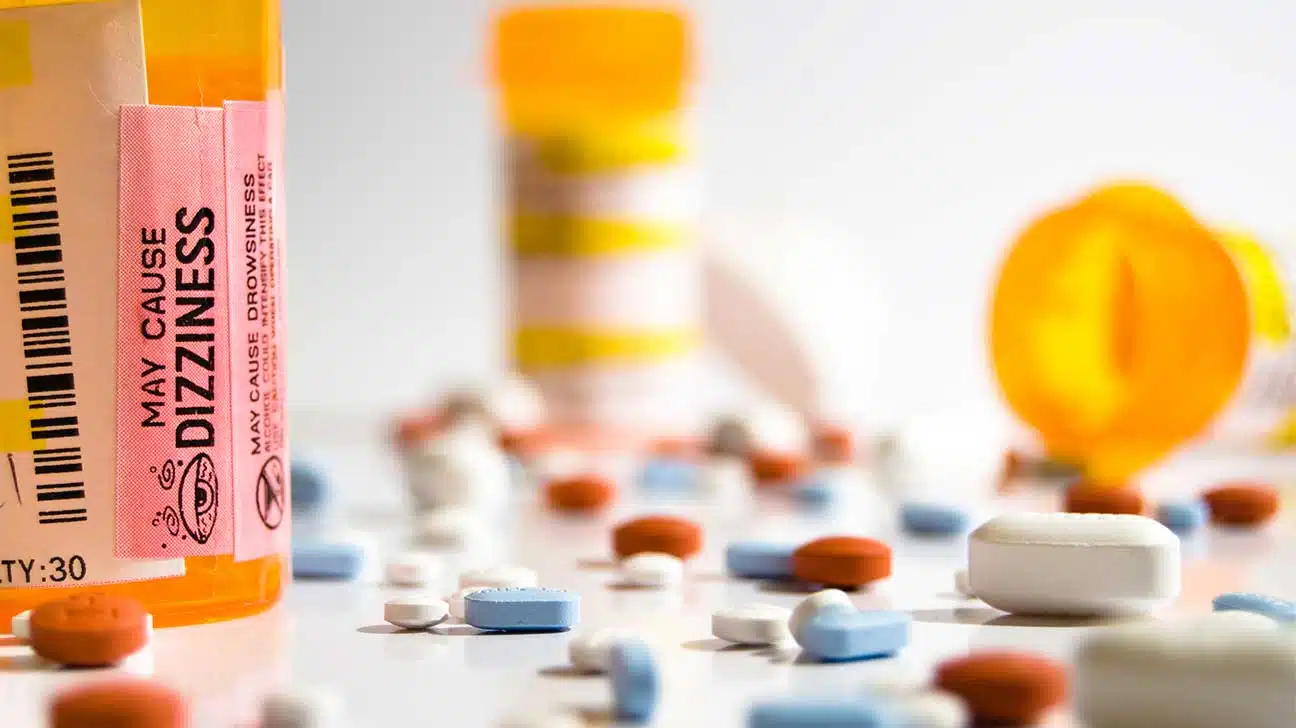
With National Prescription Drug Take Back Day occurring on October 28, some people are examining their relationship with prescription drugs.
Here you’ll find information on prescription drug abuse, including types of prescription misuse and signs of substance use disorders (SUD).
Types Of Prescription Drug Abuse
Not all prescription drugs are habit-forming or addictive, but some prescription medications do carry risk factors for drug misuse.
Some common types of prescription drug abuse include:
- stimulant abuse — abusing drugs that speed up the central nervous system (CNS), including amphetamines (Adderall) or methylphenidates (Ritalin)
- sedative abuse — abusing drugs that slow down the CNS, including benzodiazepines such as Xanax
- opioid abuse — abusing prescription painkillers, such as hydrocodone or oxycodone (OxyContin)
When a person has a legitimate prescription for one of these medications and uses it appropriately, they are not abusing drugs.
However, if a person uses these substances without a prescription, or if they use them in non-prescribed ways, they may have an addiction.
Signs And Symptoms Of Prescription Drug Abuse
There are several warning signs and symptoms you can look for if you suspect that you or a loved one is addicted to prescription drugs.
1. Using Drugs In Spite Of Negative Consequences
Addiction causes people to continue using substances even when they experience negative consequences for doing so.
In contrast, a person without an SUD may alert their doctor to any negative consequences of their medication and ask to discontinue or adjust their prescription.
Some examples of these negative consequences include:
- severe or worsening side effects such as drowsiness, constipation, unregulated body temperature, or weight loss
- mental health problems such as mood swings or poor decision making
- strained relationships with friends or family members
- financial difficulties
- legal difficulties
2. Non-Prescribed Drug Use
A person experiencing prescription drug addiction might use drugs in ways other than prescribed.
Some examples of unapproved prescription drug use include:
- using a drug without a prescription
- stealing drugs from somebody else’s medicine cabinet
- taking higher doses than prescribed
- snorting or injecting oral medications
- combining prescription medications with other drugs, over-the-counter medicines, or alcohol
3. Behavioral Changes
All types of substance abuse, including prescription drug abuse, can cause behavioral changes.
These changes may include:
- secretive behavior
- defensiveness
- seeking multiple healthcare providers to obtain multiple prescriptions (“doctor shopping”)
- sudden isolation or abandoning old friends for new ones
- changes in grades or work performance
- hygiene difficulties
4. Withdrawal Symptoms
Different classes of drugs cause different withdrawal symptoms when a person uses them for a long time.
For instance, abruptly stopping ADHD medication may cause headaches and drowsiness, while ceasing opioid painkillers may cause physical pain and worsen sleep disorders.
It is important to note that withdrawal symptoms, in and of themselves, do not always indicate an SUD.
Withdrawal symptoms occur due to physical dependence on a drug rather than the mental health condition of addiction, and it is possible to experience withdrawal even after taking a drug appropriately.
However, withdrawal does commonly occur alongside addiction, and its symptoms may be worse among people who abuse drugs.
Find Addiction Treatment Today
Addiction is a complex mental health disorder, but like other mental health disorders, it is treatable.
If you or a loved one needs help from a treatment center, contact Addiction Resource today to learn more.

